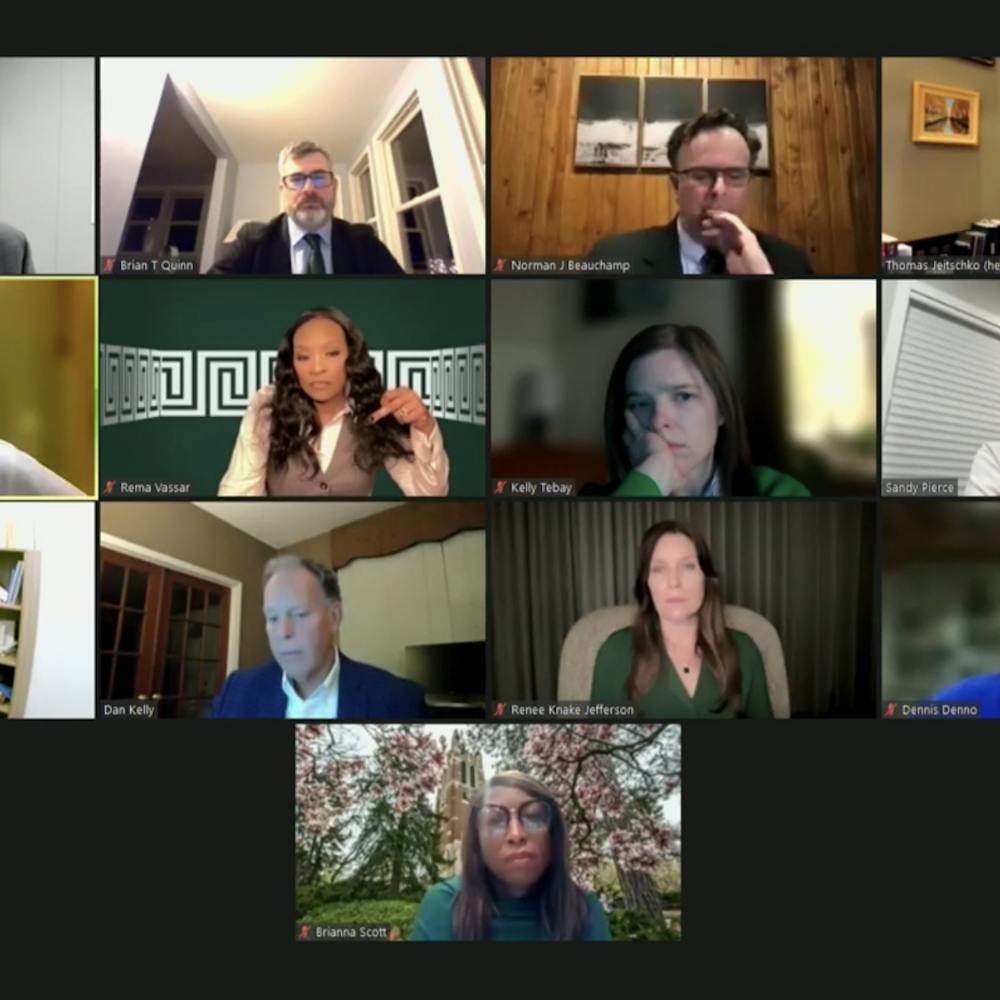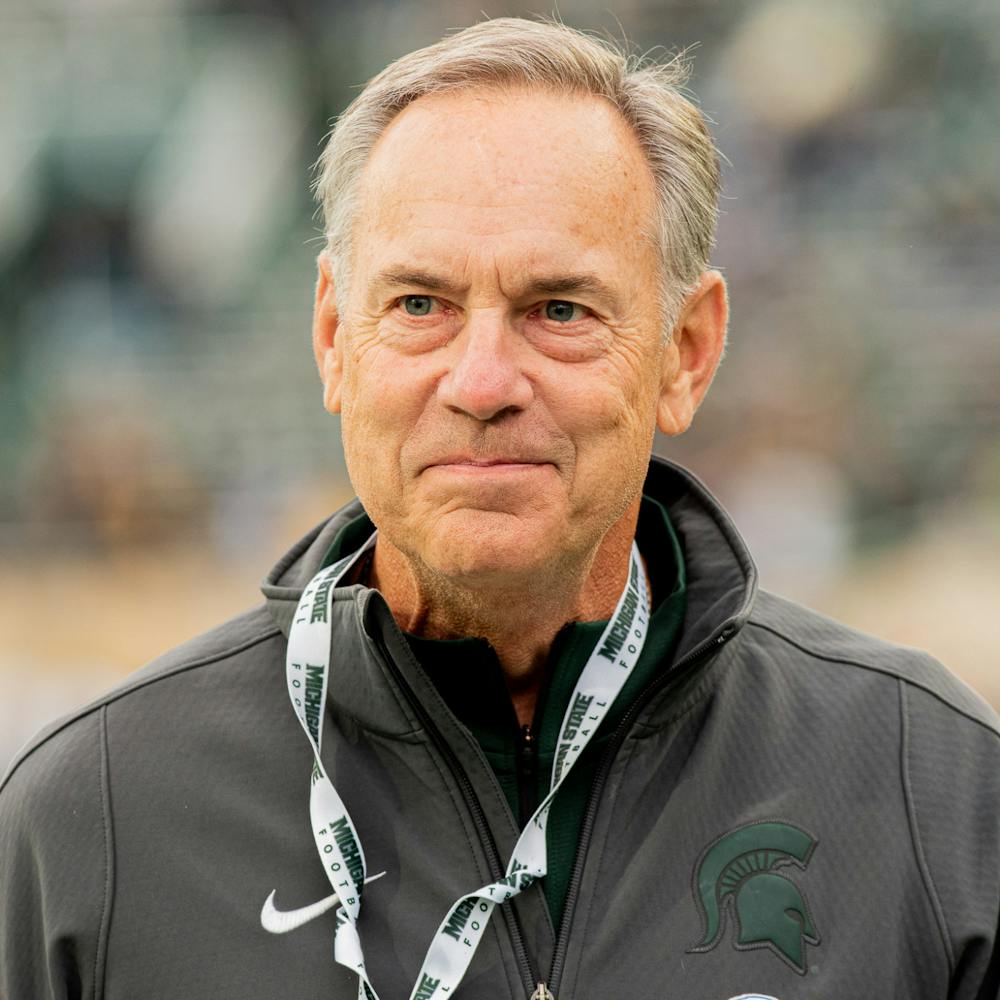Four people are standing in a room - a short-haired woman with boyish clothes and no makeup, an attractive woman with long hair wearing a short skirt, a handsome young man and a cute little old lady.
Can you pick out which one is the feminist? The first might seem like the obvious choice, but in reality, all or none of these people might actually be feminists.
The word “feminist” conjures up a similar image for many people: a woman with short hair, hairy legs and big biceps. And some feminists do look like this, and should be welcomed and accepted into the feminist movement and society in general.
But, in reality, many feminists do not fit the profile, and the public’s misconceptions discourage the majority of women from even considering participation in causes that might be deemed feminist.
The personality of a feminist is pigeon-holed even more than the person’s appearance. Feminists are thought of as bitchy, bitter man-haters who will jump down a guy’s back for opening the car door. “Feminist” has become a dirty word, a derogatory remark, even though people cannot think of any specific horrible things feminists have ever done.
People are usually surprised when I declare myself to be a feminist. After all, I wear makeup, I wear short skirts and I date boys. How can this be possible?
These misconceptions are especially prevalent among people my age, and have scared most women my age from calling themselves feminists. Women my age also are satisfied with the progress that has been made, and feel as though further activism would look like spoiled whining. We grew up hearing about how much better things are than they were 100 or even 25 years ago, and it’s true - vast and significant improvements have been made.
But being grateful for the rights and privileges women have today does not mean kicking these privileges in the face by distancing ourselves from the people who brought them about. On the contrary, it means taking the reins in our own hands, and steering the movement in the direction we want it to go for the future.
Stereotypes have caused many to feel that feminism is too extreme for them, as if they could not possibly fit in with other feminists. Women feel as though being a feminist would make them seem too serious, too political, unattractive to men or just downright unfeminine. And even the few men I know who realize the feminist movement is not a movement against their gender would not go so far as to consider themselves feminists.
Most of the women who would be quick to deny being feminists possess the views and values I would associate with feminism. If you are one of a large number of women who does not consider herself a feminist, ask yourself a few questions.
Do you think that women should earn the same wages as a man for the same job? Do you think women should have access to safe, reliable birth control? Do you think a woman should be able to pursue any job she wants or attend any university she wants? Do you think a woman has the right to walk down the street without being raped?
I don’t know anyone who would say no to any of these questions, but I know many who would not call themselves feminists. The above-mentioned rights are what I believe feminism is about. Feminism is not never-ending whining or a crusade against the other half of our species. It is simply about equality.
The complicated thing about feminism is that everyone, even feminists, has a different definition for what a feminist is, and for who should be included or excluded from that term. There is a conflict between encouraging everyone to be part of a movement and maintaining the integrity of what exactly that movement is about.
There is a similar conflict within myself as to whether my actions contradict my beliefs. How can I wear makeup when I know the cosmetic industry exists to make women feel inadequate about themselves? How can I read women’s magazines with half-naked supermodels on the covers?
I sometimes feel as though I am ping-ponging back and forth from both ends of the spectrum. I sometimes feel like I do not fit in with feminists, but also feel very distant from anyone who is not a feminist. It can be hard to find middle ground.
But I don’t see feminism as a list of do’s and don’ts, and I don’t think it should be some exclusive club with a checklist of requirements before you or I can enter. Feminism to me is a way of looking at the world critically, a way of attempting to answer the question “Why are things the way they are?” with more than “Just because.”
Parts of my feminist personality do conflict with the, shall I say, “girlie” parts. But I think most women have complex personalities that might not coincide with every part of feminism. What feminism really is about though, is advancing the position of women. While the best ways to accomplish this goal are open to argument, I don’t think anyone can disagree with the basic principle.
While your image of a stereotypical feminist might not have changed, I hope that next time, you’ll be a little more open-minded. After all, the chances are good that most feminists aren’t that different from what you see in the mirror.
Jessi Phillips, State News opinion writer, can be reached phill241@msu.edu.






